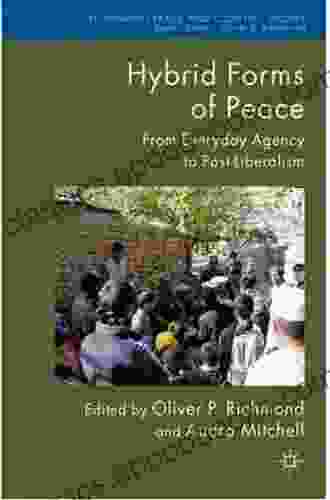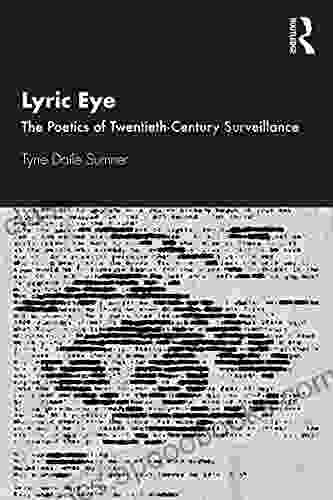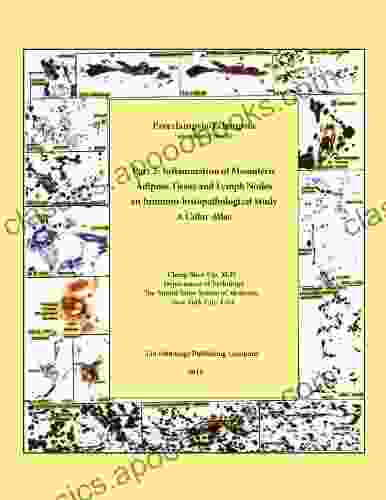International Peacebuilding and Local Resistance: Unraveling the Interplay

: Navigating the Complex Interplay
In the pursuit of global peace, international organizations and local communities often find themselves at the crossroads of cooperation and conflict. The book "International Peacebuilding and Local Resistance" delves deep into this dynamic interplay, exploring the complexities that arise when external actors engage with local realities.
This article aims to provide a comprehensive overview of the book's key insights, offering readers a deeper understanding of the challenges and opportunities that emerge in the intersection of international peacebuilding and local resistance.
5 out of 5
| Language | : | English |
| File size | : | 582 KB |
| Text-to-Speech | : | Enabled |
| Screen Reader | : | Supported |
| Enhanced typesetting | : | Enabled |
| Word Wise | : | Enabled |
| Print length | : | 258 pages |
Chapter 1: Unpacking the Challenges
The first chapter sets the stage by examining the inherent challenges that arise in international peacebuilding efforts. These challenges stem from a range of factors, including cultural differences, political complexities, and unequal power dynamics.
The authors present case studies that illustrate the difficulties of bridging the gap between international agendas and local needs. They highlight the importance of understanding local contexts and involving local stakeholders in the peacebuilding process.
Chapter 2: Exploring Local Perspectives
Chapter 2 takes a closer look at the perspectives of local communities. It explores the reasons why local actors may resist international peacebuilding initiatives, such as mistrust, fear of co-optation, and the perception of external interference.
The chapter also examines the role of local agency in peacebuilding and emphasizes the need for recognizing the legitimacy of local resistance. It argues that local ownership and participation are crucial for sustainable peace.
Chapter 3: Negotiating the Middle Ground
The third chapter delves into the strategies and approaches that can be used to navigate the tensions between international peacebuilding and local resistance. It explores the importance of dialogue, trust-building, and power-sharing.
The authors present examples of successful collaborations between international organizations and local communities. They highlight the need for flexibility, adaptability, and a willingness to listen to and learn from local actors.
Chapter 4: Case Studies in Practice
Chapter 4 provides in-depth case studies that showcase the interplay between international peacebuilding and local resistance in various conflict contexts.
These case studies offer insights into the challenges, opportunities, and lessons learned in countries such as Afghanistan, Colombia, and Liberia. They demonstrate the complexities of peacebuilding and the importance of context-specific approaches.
Chapter 5: Reflections and
The final chapter synthesizes the key findings of the book and offers reflections on the future of international peacebuilding. It emphasizes the need for a nuanced understanding of local resistance and the importance of building partnerships based on mutual respect and understanding.
The authors conclude that international peacebuilding efforts should embrace local ownership, prioritize local agency, and foster inclusive processes that empower local communities to shape their own futures.
Expert Perspectives: Q&A with the Authors
To gain deeper insights into the book's perspectives, we spoke to the authors and asked them the following questions:
Q: Why is it crucial to understand the interplay between international peacebuilding and local resistance?
A:"Ignoring local resistance can lead to unsustainable peacebuilding outcomes. Understanding local perspectives and incorporating them into peacebuilding efforts increases the likelihood of acceptance, ownership, and long-term success."
Q: How can international organizations navigate the challenges of working with local communities?
A:"Flexibility, humility, and a willingness to listen are key. International organizations should respect local contexts, engage in genuine dialogue, and empower local actors to take ownership of the peacebuilding process."
Q: What are the key takeaways for policymakers and practitioners engaged in peacebuilding?
A:"Prioritize local agency, promote inclusive decision-making, and foster partnerships based on trust and respect. By working in collaboration with local communities, we can create more effective and sustainable peacebuilding initiatives."
Call to Action: Engaging in Informed Peacebuilding
The book "International Peacebuilding and Local Resistance" is an invaluable resource for anyone seeking to understand the complexities of peacebuilding. It provides a comprehensive analysis of the challenges and opportunities that arise when international organizations engage with local realities.
By embracing the insights presented in this book, policymakers, practitioners, and researchers can contribute to more effective and sustainable peacebuilding efforts that truly empower local communities.
Let us work together to build a future where peace is not imposed but embraced, where local ownership and agency are central to shaping a more just and equitable world.
Image Alt Attribute: Book cover of "International Peacebuilding and Local Resistance," featuring a globe representing global peacebuilding efforts and an arrow representing local resistance.
5 out of 5
| Language | : | English |
| File size | : | 582 KB |
| Text-to-Speech | : | Enabled |
| Screen Reader | : | Supported |
| Enhanced typesetting | : | Enabled |
| Word Wise | : | Enabled |
| Print length | : | 258 pages |
Do you want to contribute by writing guest posts on this blog?
Please contact us and send us a resume of previous articles that you have written.
 Book
Book Novel
Novel Page
Page Chapter
Chapter Text
Text Story
Story Genre
Genre Reader
Reader Library
Library Paperback
Paperback E-book
E-book Magazine
Magazine Newspaper
Newspaper Paragraph
Paragraph Sentence
Sentence Bookmark
Bookmark Shelf
Shelf Glossary
Glossary Bibliography
Bibliography Foreword
Foreword Preface
Preface Synopsis
Synopsis Annotation
Annotation Footnote
Footnote Manuscript
Manuscript Scroll
Scroll Codex
Codex Tome
Tome Bestseller
Bestseller Classics
Classics Library card
Library card Narrative
Narrative Biography
Biography Autobiography
Autobiography Memoir
Memoir Reference
Reference Encyclopedia
Encyclopedia Melissa Gallico
Melissa Gallico Andrew Collins
Andrew Collins Thomas Hart Benton
Thomas Hart Benton Stephen Ward
Stephen Ward Ansgar Graw
Ansgar Graw Frank Converse
Frank Converse Edward James Snowden
Edward James Snowden Andrea Stanley
Andrea Stanley Andrea Witzke Slot
Andrea Witzke Slot Lawrence Lessig
Lawrence Lessig Johnna B
Johnna B Andrew W G Rees
Andrew W G Rees Daishin Morgan
Daishin Morgan Franz Harper
Franz Harper Anne Ripley
Anne Ripley James Nuttall
James Nuttall Fernando De Rojas
Fernando De Rojas Tom Harrison
Tom Harrison George Gilder
George Gilder Andrea Gibson
Andrea Gibson
Light bulbAdvertise smarter! Our strategic ad space ensures maximum exposure. Reserve your spot today!

 F. Scott FitzgeraldCowboy Brown's Enthralling Recollections of Range Life: A Journey into the...
F. Scott FitzgeraldCowboy Brown's Enthralling Recollections of Range Life: A Journey into the... Oscar WildeFollow ·4.5k
Oscar WildeFollow ·4.5k Thomas MannFollow ·9.2k
Thomas MannFollow ·9.2k Isaac BellFollow ·3.8k
Isaac BellFollow ·3.8k Harvey HughesFollow ·11.3k
Harvey HughesFollow ·11.3k Jacques BellFollow ·7.9k
Jacques BellFollow ·7.9k Carson BlairFollow ·13.2k
Carson BlairFollow ·13.2k Houston PowellFollow ·19.2k
Houston PowellFollow ·19.2k Andy HayesFollow ·15.2k
Andy HayesFollow ·15.2k

 Devin Ross
Devin RossUnlocking the Secrets of the Mind: Brain Mapping...
The human...

 Jacob Foster
Jacob FosterNovel of Misconception, Truth, and Love: A Journey of...
Unraveling the Lies We...

 Benji Powell
Benji PowellThe Only Technique You Will Ever Need: Unlocking the...
By [Author's...

 Pete Blair
Pete BlairUnveiling the Enchanting World of 'Magnolia House' by...
A Literary...
5 out of 5
| Language | : | English |
| File size | : | 582 KB |
| Text-to-Speech | : | Enabled |
| Screen Reader | : | Supported |
| Enhanced typesetting | : | Enabled |
| Word Wise | : | Enabled |
| Print length | : | 258 pages |














